DIG THIS
Charlie Lakin, the Yorkshire chef born to forage and cook
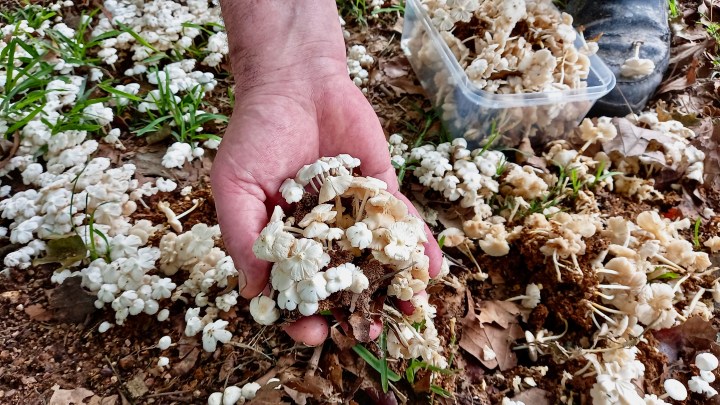
Charlie Lakin is passionate; wears his heart on his sleeve with food, family, diners he digs and those he doesn’t. Also foraging and his spiritual connection to nature. So what does living the dream look like for this Michelin-rated chef from Yorkshire?
Meraki. A Greek word that loosely translates as “labour of love”. What Charlie Lakin – forager, food alchemist, a Yorkshireman with Michelin star credentials, a chef led to Durban seven years ago by love, a man of passion and opinions about ingredients and the preparation of them – will call his small fine-dining restaurant at its out-of-the-way Hillcrest spot when he formally opens it later this month.
Right now he is hosting popups. Fully booked. The first, even before he posted the menu. Such does the reputation he has established precede him that those who know his cooking, the sublime flavours and creative ingenuity he dishes up, will confidently follow him to eat, be surprised by and relish whatever he serves up.
“My food? I love flavour. Big flavour. And it’s deeply rooted in old school cookery. It’s classical French. It’s farmhouse British. It’s traditional food. But you know, traditional food was what was in season, what was local, what was there and then.
“It wasn’t the sort of thing where chefs create a menu and then go looking for ingredients. I do it the other way round. I get the ingredients and then I create the menu. It’s more intuitive and I feel it’s more honest. I don’t try to manipulate an ingredient to be what I want it to be, I let the ingredient tell me what it’s going to be and how it’s going to work.”
Flavour, he says, comes from quality ingredients and what you do with them. “How many steakhouses do you go to and their beef is red. It’s never been hung. I use beef that’s been minimum aged 28 days. If I could it would be three months. The flavours develop. They develop in your stock and sauces in the way you build your ingredients, going back to what you’re buying. Freshness and constantly layering within layering. I don’t use a lot of spices. To be honest, I do use some cumin and coriander. Spices are not a really big part of classical French-British cookery.
“I was trained classic French. So the first kitchen I worked in, I was the youngest by like 20 years. They were all Escoffier boys. On the menu were fillet steak Rossini, duck a l’orange, pork fillet in Stilton sauce, chicken chasseur, sole Véronique.” These with the flavour and simplicity of the mother sauces.
Chef Charlies uses a lot of fermented liquids in his plant-based cookery. “It’s also about no waste,” he says, adding that you get a lot of flavour it you don’t throw things in the bin. Making a stock, a flavoured oil or a dehydration, building on the classical way all the time.
“It’s been great as a confidence booster,” he says of his sell-out launch dinner. He is, in fact, prepping for said dinner when he tells me this. He and I have a “date” to meet and chat three days later. But on “the day” I happen to be heading to Hilton and my curiosity gets the better of me. Into my phone’s map app, I plug 7 on Builders and find myself at a small lifestyle centre in Hillcrest I had never heard of before reading in a Facebook post that this was where “the dream that is Meraki is about to happen”.
Another post reads: “Thank you to every one of you who is showing me so much support with the opening of my first restaurant for myself. You don’t all realise the drive to really make this a massive success and just how much you are helping keep the stress and anxiety demons at bay.”
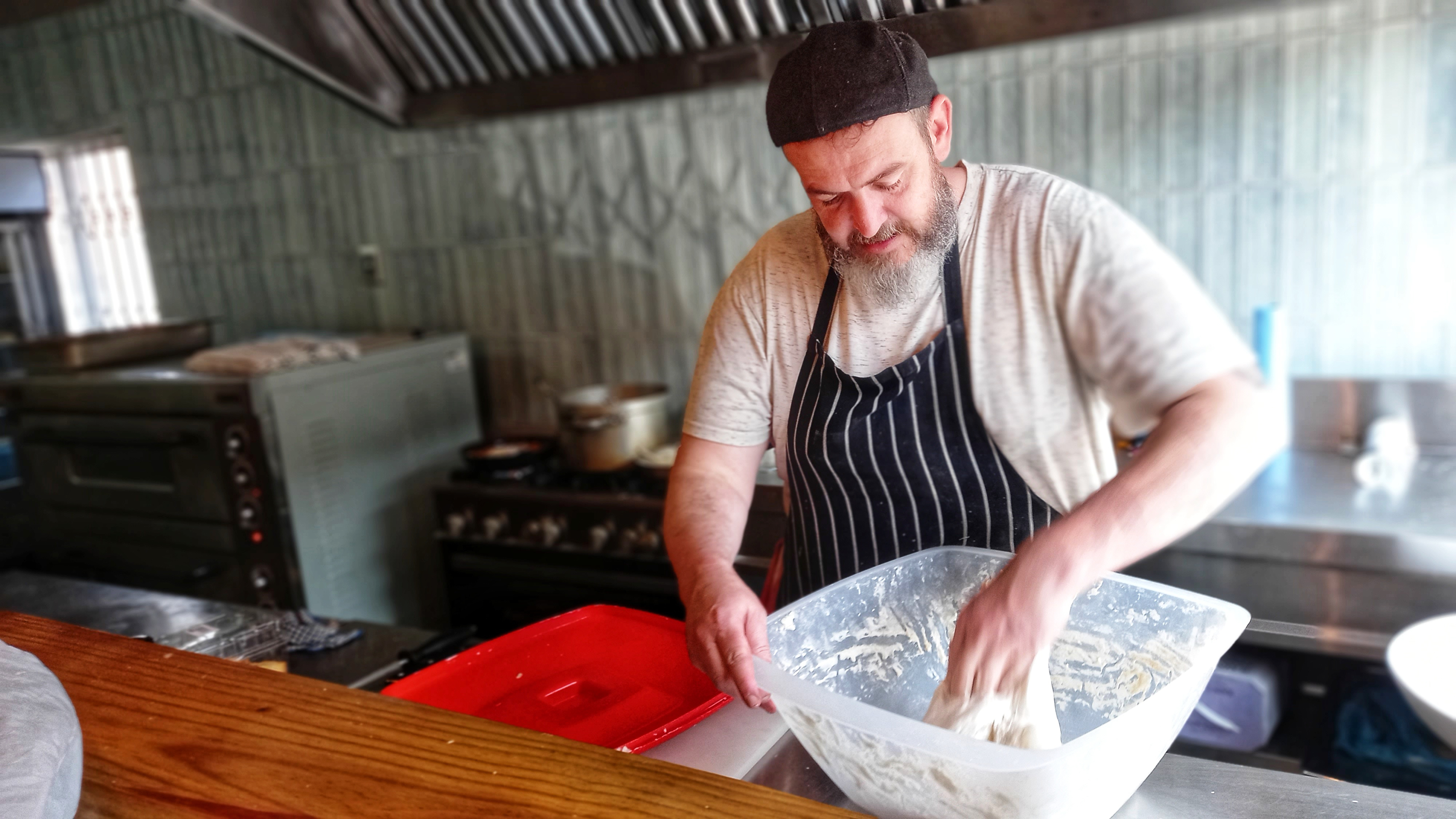
Charlie Lakin works his sourdough in his restaurant kitchen. He brought the ‘mother’ starter from Yorkshire going on eight years ago. (Photo: Wanda Hennig)
“Ignore me. Pretend I’m not here. I’ve just come to look around, not to disturb,” I say when I find him. And he does get on with the kitchen busyness. Oven opening and shutting. Doing invisible things out back. Stripping the soft leafy throngs off carrot stalks into a small bowl. Chatting and explaining much of the time. “I’m going to make a sunflower seed and carrot top pesto with these,” he says.
The leak stalks, dried and charred and on a plate on top of the stove, will become ash, which he will mix into a mayo as a steak seasoning.
He brings, in succession, three containers each with a different percolating sourdough, which he stretches and folds in turn before letting the dough rest again. Tells me he kind of sneaked in the “mother” starter when he came here from Yorkshire going on eight years ago and has been feeding it, working it, since then.
“What I’m trying to do here is being conscious and honest about where my produce comes from. If I can’t tell you who has produced it or grown it, I don’t want to use it. It’s as simple as that. And if it’s not good enough we don’t work with it.” His conversation is peppered with the names of his suppliers who he regularly thanks and links to on his Facebook and Instagram.
He tells me something Covid and the looting taught him was, “You realise you have to do what’s important. You can’t give your life away.”
So now, he says, yes, there’s stress and money worries, “doing this thing I’ve never done before. But it feels right. I have time again to forage. And I can spend Sundays with my family”. Two things he could rarely do the past three years, he says, working as he did six days a week and sometimes seven and commuting from Hillcrest to the Point area of Durban. Now he can literally walk to where he is cooking, which is kind of in the midst of what he is cooking.
The breads he’s prepping, he will bake for Pablo Honey, an eclectic store next door to what will be Meraki. Pablo Honey, where you can buy secondhand books, arty things, collectables, have coffee and where I purchase a loaf of his 40% rye sourdough, two (perfectly chewy meltingly chocolatey) brownies and a (plump, luscious, flavoursome) mince and cheese pie to take with me as I continued on my weekend journey. Oh, and an ancient hard-covered Kurt Vonnegut’s Cat’s Cradle to deposit at a friend’s house. For no reason except he has a cat.
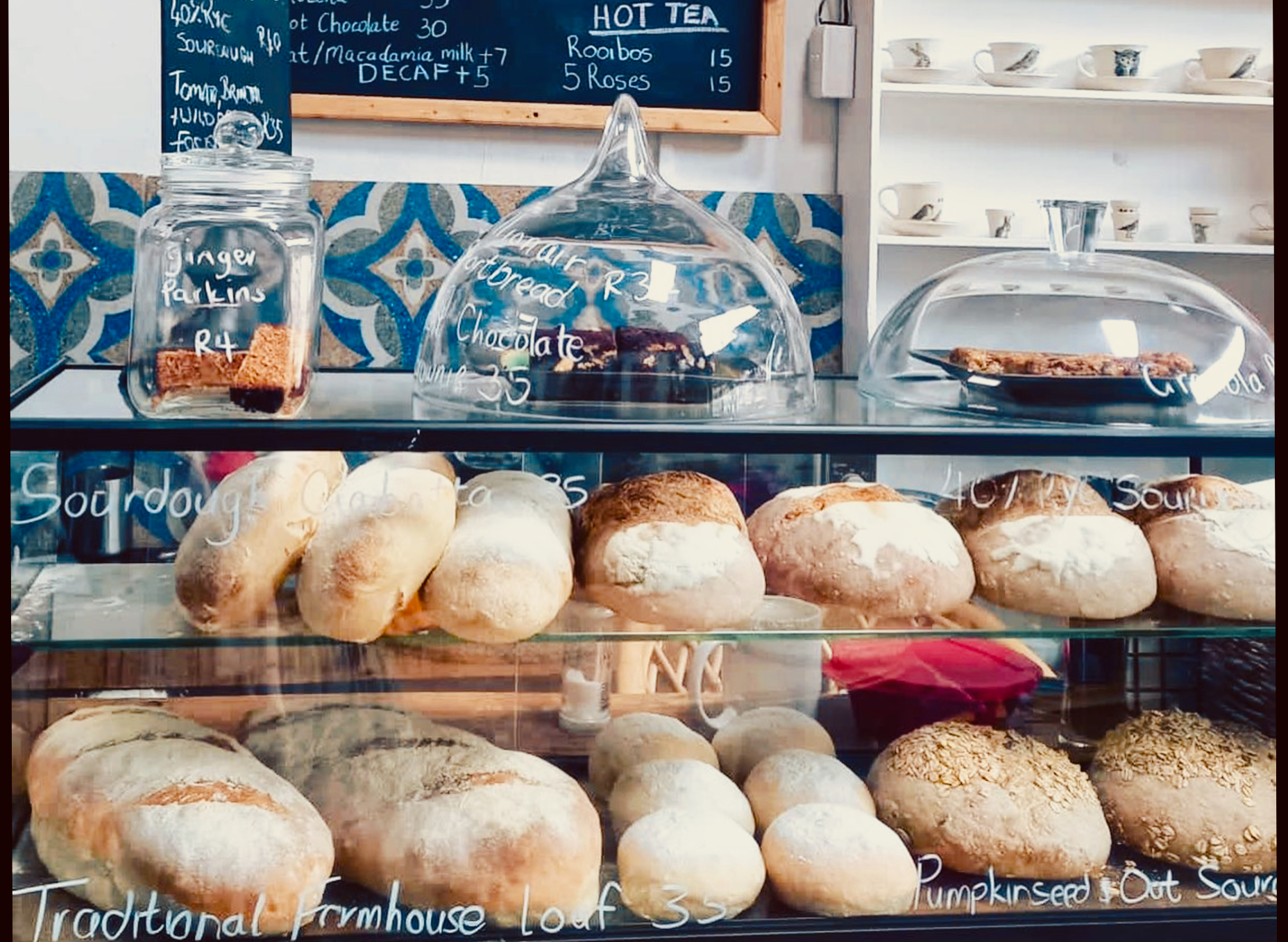
Charlie Lakin’s bread, available along with his pies, some pastries and a growing list of take-home items at Pablo Honey. (Photo: Supplied)
When I arrive back on Monday for our planned meeting, Chef Charlie is just as busy. “Every moment counts,” he says, telling me we can talk while he works as he dispenses castor sugar into a bowl. “I’m going to make some quick blueberry muffins for Pablo Honey,” he mutters in his Yorkshire accent, plops two punnets of blueberries into his mixture, stirs while responding to someone who has popped by to say good things about his inaugural pop-up.
Pablo Honey is his focus today. Plus prepping for one plant-based dinner that became two, on successive nights, when all the spots in the first quickly filled.
“The initial idea was to have a different tenant at Pablo Honey,” named for the first studio album by Radiohead, the English alternative rock band. “There was also a suggestion that the name be changed. But why?”
Why indeed? “Music is my escape from all bullshit in life,” is one of his social media posts. And Pablo Honey, he has been associated with from way back, when he was freelancing, doing chef’s table dinners, between his stint as head chef at 9th Avenue Bistro, his first gig when he moved to Durban and more recently, making culinary magic at Mahā.
Same as for Meraki, he has ideas and dreams for Pablo Honey. “It’s still early days and you always have doubts and I don’t want to say, this is going to be fantastic.” But he’s hopeful. Optimistic. He has a vision of turning it into an outlet for amazing produce.
“I see this as my opportunity to give back to the community I’ve grown to call home.” He envisions possibly a bakery in there. Maybe also a small old-fashioned butcher shop. Several times he mentions farmer Richard Haigh and his Enaleni Farm (read our TGIFood Enaleni story here).
“People like Richard Haigh, to me they’re the people that are saving the planet. The way they cook, the way they live. Not these guys that want almond milk instead of cow’s milk because they’re being told it takes less water. But by the same token, factory farming, these big feedlots, that’s the problem. The only way we’ll save the planet is by going back to the old-fashioned ways, buying your milk, your beef, your meat, from the small independent farmer down the road where you know they’re doing things properly.”
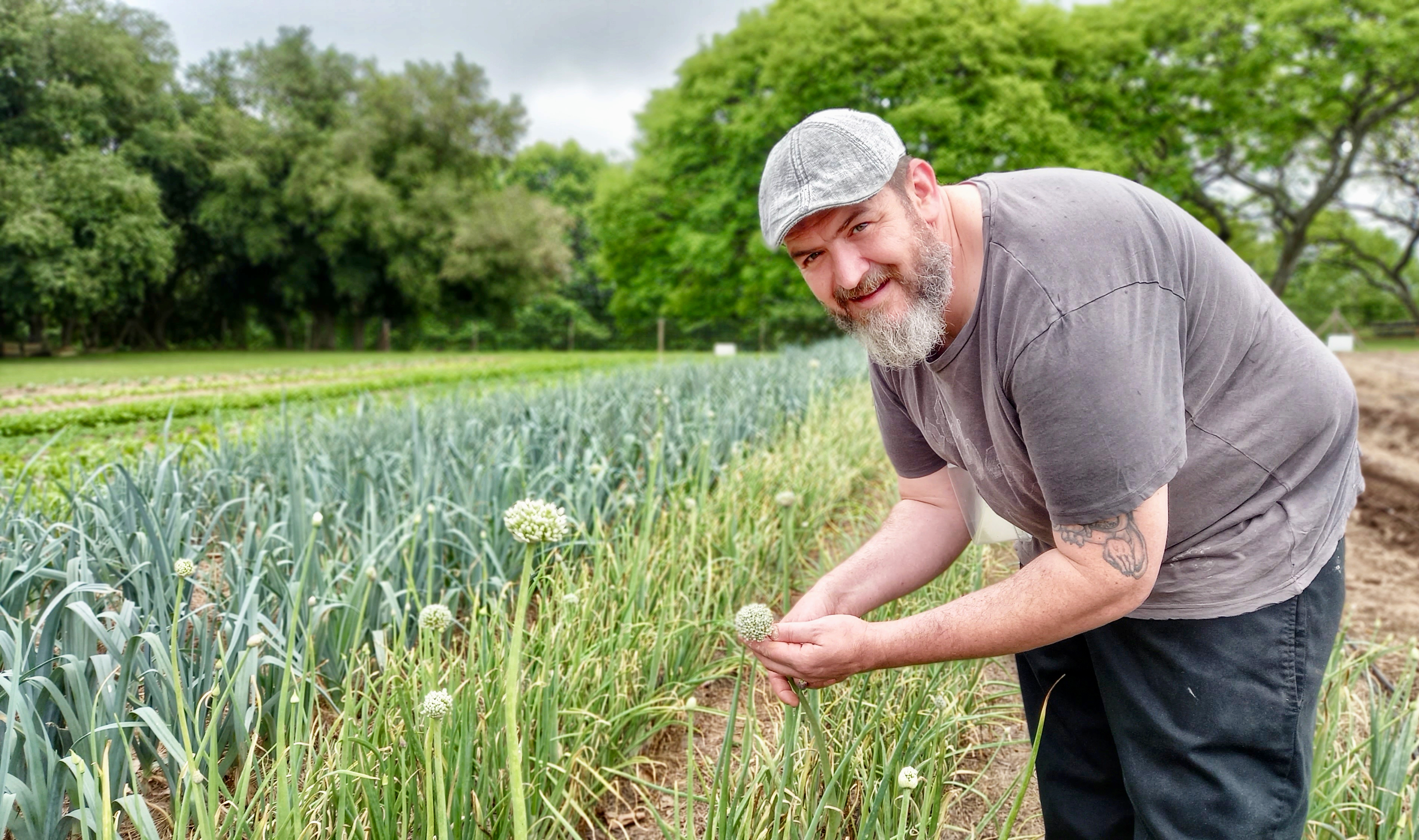
Harvesting onion flowers, which he says have a sweet oniony pop to them, at Camp Orchards. (Photo: Wanda Hennig)
Our plan for my visit is that I’ll go with Chef Charlie to Camp Orchards about 10 minutes away so I can see one of his favourite foraging spots. He doesn’t want to be associated, he says, with formal pictures of plated food. Reminds him too much of the selfie brigade who snap themselves to be seen, not because they appreciate the food. Foraged ingredients and the preparation of them, he approves of. Besides, the menu will change every day so what you see is not what you will get.
He’s been told the rains have brought up sprinklings of ghee mushrooms, which we see when we get there, delicately carpeting a patch of damp earth beneath a certain tree.
“They’re a type of amakhowe. You know, the big ones? Same family,” he says, adding that the rains get the ants excited and they bring up the spores.
He gently lifts his little haul into his recycled ice cream container, no more than he thinks he might use, rather come back, because there are other creatures around that like to eat them. Back in the kitchen he’ll let them sit a bit to dry off. Possibly lightly sauté them. “They’re great to work into a little salad. Such freshness. Or just to put raw on the plate.”
He eats one. I eat two. Taste subtle mushroom. Wait to die. The forager-wannabe’s quandary.
“I had that fairy tale upbringing, you know,” he shares, back in the kitchen. “Sitting down in the garden munching peas straight from the pod, things like that. And me and my brothers would go out… it’s a bit dodgy but we’d go out snaring rabbits, doing a little bit of poaching, things like that with dogs. My grandfather was a gamekeeper and my dad was a gamekeeper. They worked in forestry and farming. So all my life I’ve foraged. My way of cooking is how I was brought up. It’s not like I’m trying to follow a trend or be fashionable.”
Like yesterday, Sunday, “we went down the South Coast and I came back with a bag full of elderflowers. (He shows me.) “I’ll be making a cordial. Then when I was walking back to where my girls were, I saw a lot of wild figs.” (He shows me.) I’m going to make a wild fig ketchup with them.”
Foraging for him is also a nature thing. “Sometimes I need to be in touch with Mother Nature. It helps me a lot. I’m not a spiritual person as in going to church but I am spiritual through my connection with Mother Nature. She’s a big leveller in terms of my way of thinking and the way I am.
“Like yesterday, I was picking the elderflowers and from one angle I couldn’t see anything and I was thinking, nothing here… And then I turned and walked to the other side of the bush and there were loads and it was a metaphor for, sort of, to stop, take a step back, then look from a different angle and it’s all there in front of you.
“I feel when I’m not in an environment where Mother Nature is accessible, you could say when I’m not in my church, I kind of lose sight of certain things and it kind of helps me to be out there in the wilds, in the fields, with the plants, the animals. I find a comfort and a calmness in it and also a lot of answers to life. For me being in the middle of the woods, in the middle of a field, in the middle of a herd of animals, there’s a connection, a spiritual sort of peace.”
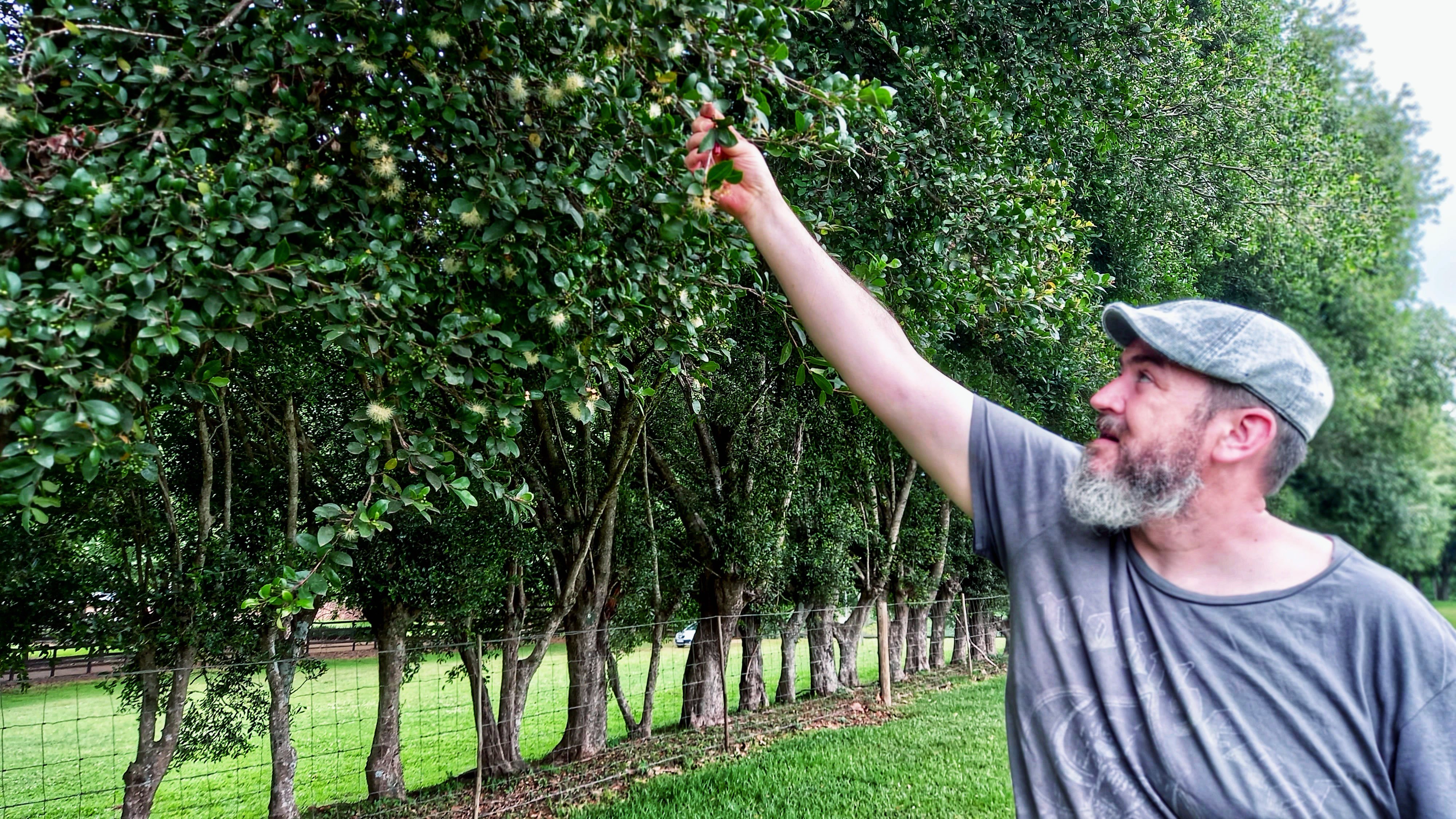
Soon as the lilly pillies burst forth, he will harvest, ferment, pickle and dehydrate; use them for cordials, in scones and ‘like goji berries’ in granola. (Photo: Wanda Hennig)
Before leaving Camp Orchards to drive back, he checks the fruit developing on a line of lilly pilly trees (Australian cherries). “If I get enough this year, I want to dehydrate them to go into my granola, like goji berries. They have that acidic flavour. I have also put them into scones. Fermented them, pickled them, made jelly, wine and cordials with them. They’re all the way round this entire field and there are about another 20 places in Hillcrest I pick them from as well.”
The foraged onion flowers “have a nice sweet oniony pop to them. I’ll either tempura them or I’ll use them raw, chop them into salad. Just for a very quick raw clean onion flavour.”
The first time I met Chef Charlie, it was shortly after he arrived in the country. He was head chef at 9th Avenue Bistro, at it’s pre-Waterside parking lot location. His already-acclaimed foraging menus were the focus. My piece was for Woolies Taste magazine. And off-the-record he sounded off about Durban diners. Said he had never known people, anywhere else, who would come ostensibly to eat his food, then tell him what to add, what to subtract and how they wanted it cooked.
Keen to write about him for TGIFood, he blew me off right through Covid and for going on three years. Citing similar issues with Durban diners. Those into fast food and the predictable, flummoxed when they didn’t see the usual suspects on the menu. “I think why my cooking didn’t suit the majority is they were always, like, where’s the meat smothered in basting sauce? Where’s the spice?”
That came up for him often, he says. “These customers I think don’t always understand egg cookery, steak cookery, what goes into dishes. They don’t realise the hours spent doing we do. You’ll get a chef putting in the research and like a lifetime of experience and they think they can just rock up, change a dish, do whatever they want when I’m trying to cook classical dishes. You’ve got people who don’t really have a clue but they’re criticising you, the food, not because you’ve done anything wrong but because they have a personal preference.”
So here? Now? “I’ve got to that stage when you just cook it right. (US chef) Charlie Trotter said back in the mid-90s, the old adage that the customer is always right is actually one of the most untrue comments going. As he said, at the end of the day, I know my food better than you, so when you come here, let me dictate what you eat and you will leave with a far better experience.” Trotter also famously said it can be necessary to fire customers. To get rid of those whose expectations don’t meet your standards and focus on the ones who do.
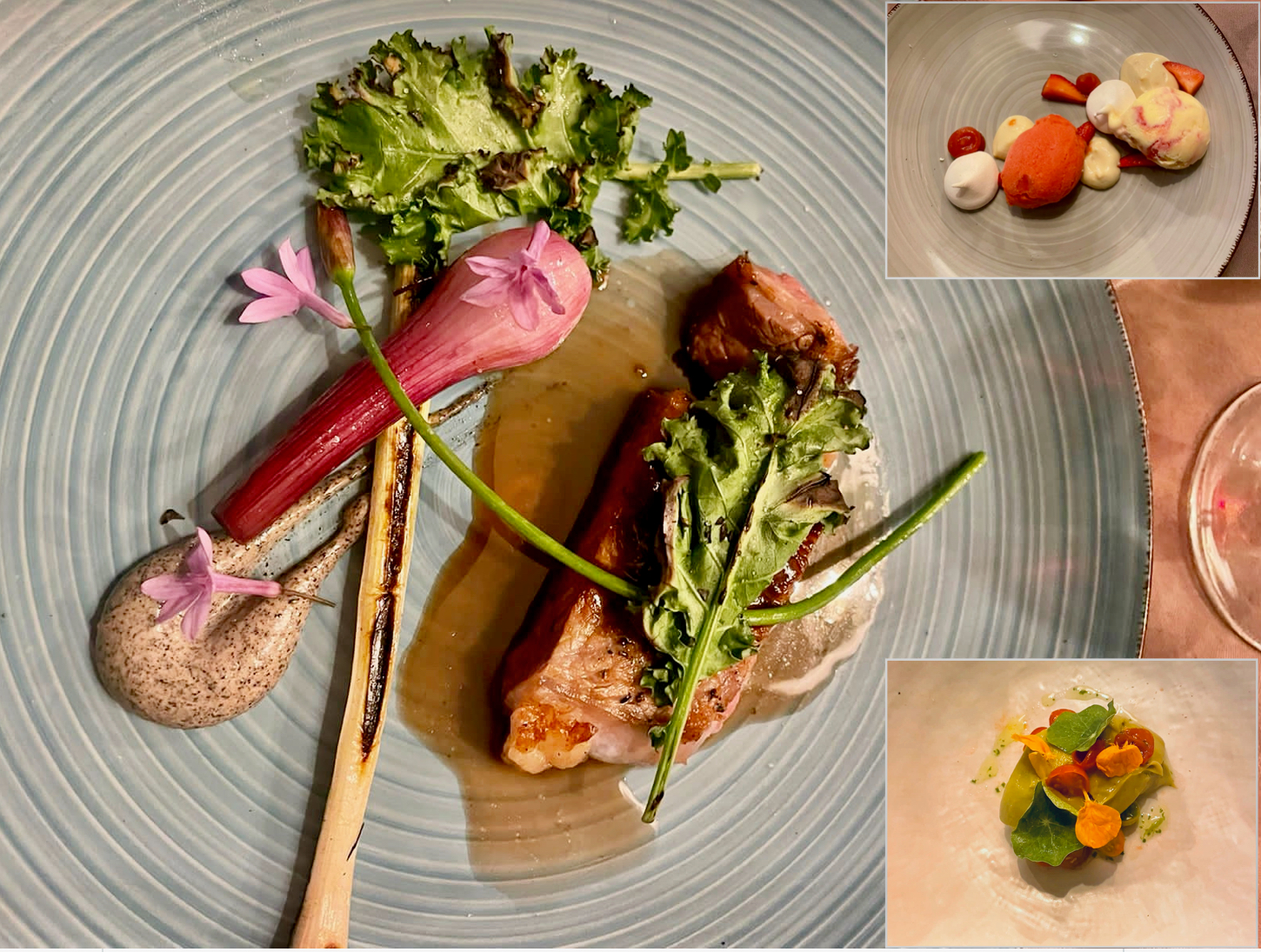
Charlie Lakin’s first pop-up at soon-to-be Meraki included a dry-aged ribeye with braised shin cottage pie and baby leek main; a starter of foraged cherry tomatoes, smoked butter avo and nasturtiums; and a strawberry pavlova dessert with jasmine cream. (Photos: Supplied)
“Friday night was like cooking for my family. I felt passion. Love. As chefs we want to give the best experience we can. We cook for people. We want to be passionate.”
To give you an idea of his food, on that night anyway:
For starters, foraged cherry tomatoes, smoked butter avo, nasturtiums.
This was followed by zucchini tarte finè (a thin tart with little or no rim), crispy duck, naartjie, soured cream with rosemary.
Then roast spring chicken breast, globe artichokes, herb farce, baby carrots and oyster mushrooms.
Next came dry-aged ribeye, braised shin cottage pie, baby leeks, pearl red onions, wild garlic scapes and kale.
And finally, for dessert, strawberry pavlova, fresh strawberries, strawberry ripple ice cream, strawberry sorbet, jasmine cream – the meringue chewy.
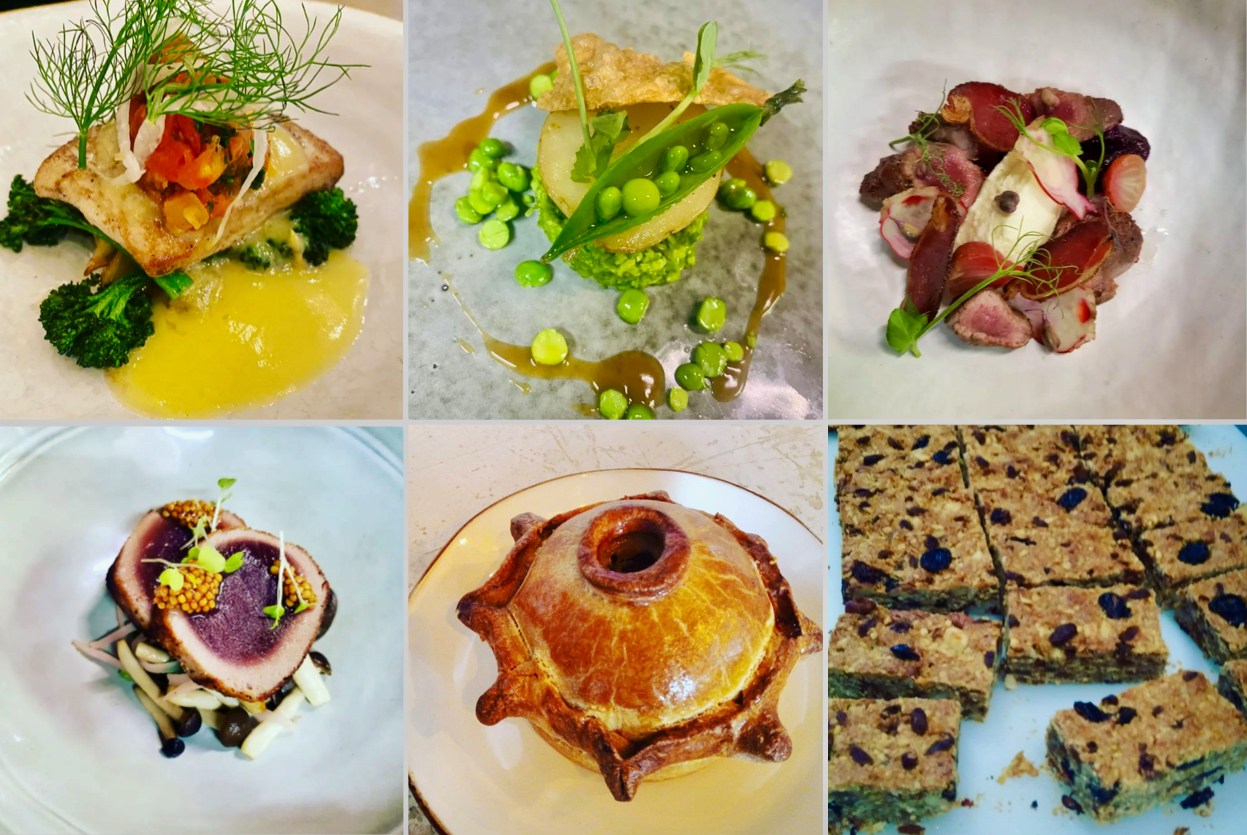
Some menu items from his Mahā days, clockwise from top left: pan-roasted angel fish with preserved kumquat butter sauce; chicken caramel with crispy skin and fresh garden peas; lamb chateaubriand with a whey sauce added table-side; ‘good old pork pie’; mixed-nut granola bars (now at Pablo Honey); seared big-eye tuna loin with shimeji mushrooms, pickled mustard seeds and a lapsang souchong broth. (Photo: Charlie Lakin’s Instagram, with permission)
It was his wife, Paula Radloff Lakin, who came up with the name Meraki, as in: To do something with passion, absolute devotion, undivided attention. It is leaving a little piece of yourself in your creative work.
“When she saw the word after 20 years of being married to me and always feeling like she came second best to food, she was like, that’s definitely the correct name for Charlie, for his restaurant, because in essence it’s what he’s always done.”
Paula was in the UK from SA on a working visa when they met “and it was pretty much love at first sight. We dated from about three days after we met and we’ve been together ever since. She’s my wonder woman. We’ve had our ups and downs. But she supported me in everything I’ve done”.
She’s not in the food business, but “doing a part-time law degree to be an attorney and she’s pretty much nailing it in under five years. She’s a full-time mum to our two girls. She’s married to a chef with mental health problems”. Stress, anxiety, depression. “She’s also a full-time conveyancing paralegal. And still finds time to have her hair done. And her nails. It’s amazing. I think for me, doing what I do, I hope I can do her proud. Be the husband she actually deserves.
“Cause she’s followed me through hell and high water in my career.”
Both daughters were born in Britain. When they came here, one was four-and-a-half (now 12) and the other six months old (now eight). And to his delight, in his new life, they can both come hang out with him when he’s prepping and cooking on Saturdays.
Meraki, beyond the pop-ups, will open for dinner four nights a week, Wednesday to Saturday. A work in progress. “How we’ll start till I get Pablo Honey to a better stage.”
When Paula first came up with the name Meraki, he says, “she meant it for me but as I’m growing as a business and getting things together, I realise Meraki isn’t just me. It’s a place. It’s my suppliers, my staff, the diners, it’s every single thing. The essence of this restaurant from the ground to the finished place.” DM/TGIFood
Follow Chef Charlie Lakin on Facebook and on Instagram. See 7 on Builders on Instagram and on Facebook.
Follow Wanda Hennig on Instagram wanda_hennig





 Become an Insider
Become an Insider
Comments - Please login in order to comment.